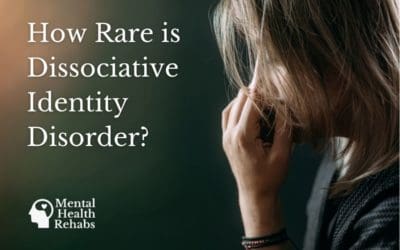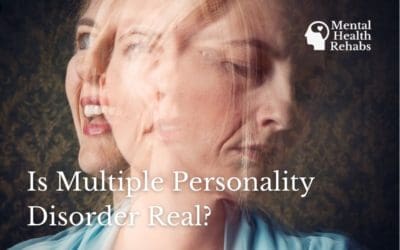Dissociative Identity Disorder.

What Is Dissociative Identity Disorder?
Dissociative identity disorder (DID) is a rare condition characterized by the presence of two or more personalities. Previously called multiple personality disorder, it’s often a reaction to trauma as a self-defense mechanism to help a person avoid triggering memories. DID is characterized by the presence of two or more distinct personalities. Each may have a unique personal history, characteristics, and even names.
Criteria for DID Diagnosis
A mental health professional may diagnose DID based on a review of symptoms and personal medical history. They may perform tests to rule out other conditions that may cause similar symptoms, such as memory loss and a sense of unreality. Conditions like tumors, sleep deprivation, intoxication, and brain lesions might cause similar symptoms.
The criteria for DID include:
- The presence of two or more distinct identities or personalities
- Amnesia or gaps in the recall of everyday events, important personal information, or memories from traumatic experiences
- Difficulties functioning in one or more major life areas because of the disorder
- The disturbance is not part of normal cultural or religious practices
- The symptoms are not directly related to physiological effects of a substance or general medical condition
Other factors such as past traumatic events or experiences, substance use disorders, and medications may be considered during diagnosis.
Symptoms Unique to Dissociative Identity Disorder
Symptoms of DID first develop as a response to a traumatic experience as a fight-or-flight response to keep those memories under control. Many stressful situations can worsen these symptoms and make it challenging to function in everyday life.
Signs and symptoms of dissociative identity disorder include:
- Feelings of one or more voices trying to take control of their head
- Multiple identities with distinct personalities
- Significant memory loss of times, people, and events
- Sudden out-of-body experiences
- Mental health illnesses such as depression, anxiety, and suicidal thoughts
- A sense of detachment from emotions
- A lack of self-identity or sense
Some people may also experience dissociate amnesia, which causes difficulty recalling information about one’s self. Others may experience depersonalization disorder, which involves having ongoing feelings of detachment from actions, thoughts, feelings, and sensations as if they’re watching themselves in a movie.
Treating Dissociative Identity Disorder
The goal of treatment for dissociative identity disorder is to help patients develop coping skills and eventually integrate their different identities into one functional person. There isn’t a medication that treats DID explicitly, but some medicines can help manage the additional symptoms that commonly occur with DID.
For the most part, psychotherapy is the primary treatment option for dissociative identity disorder. The most commonly used therapies include:
Cognitive-behavioral therapy (CBT)
Dialectical-behavioral therapy (DBT)
Eye movement desensitization and reprocessing (EMDR)
Dissociative Identity Disorder and Substance Abuse
While there’s not enough data on dissociative identity disorder and substance abuse, these conditions are known to co-occur. Roughly 50 percent of individuals with severe mental disorders are affected by substance abuse.
When someone has a mental health disorder co-occur with a substance use disorder, it’s known as a dual diagnosis. Effective treatment calls for both conditions to be treated simultaneously. Integrated treatment methods use 12-step peer support programs, trauma-informed therapy, psychotherapy, motivational interviewing, and mindfulness practices.
Though there isn’t a cure for DID or substance abuse, both conditions can be managed with ongoing care.
If you or someone you know is dealing with dissociative identity disorder or substance abuse, don’t hesitate to reach out for help. The sooner you get help, the sooner you can ding the best treatment program to meet your needs and start walking towards long-lasting recovery.
Related Articles
What is a Dissociative State?
We all know life can be overwhelming at times. What you might not know is that in cases of extreme stress, the mind may disassociate as an act of self-preservation to distance a person from the distressing event. This condition can manifest itself in a myriad of ways...
How rare is dissociative identity disorder?
Dissociative identity disorder (DID)--more commonly known by its former name, multiple personality disorder--is one of the most severe mental illnesses of its kind. It’s characterized as a person with two or more identities that function independently of each other....
Is Multiple Personality Disorder A Real Illness?
Dissociative identity disorder (DID), previously known as multiple personality disorder or split personality disorder as it’s sometimes called, is a real mental illness. It is one that is shrouded with misconceptions, stigmas, and controversy; a condition believed to...
Don’t Struggle Alone.
Get Help Today.
Reaching out for help for yourself or a loved one can be overwhelming and stressful, but it doesn’t have to be. If you are struggling to find the right help, or even know where to get started, please feel free to call our 24/7 helpline.
Begin your mental health journey right now!




